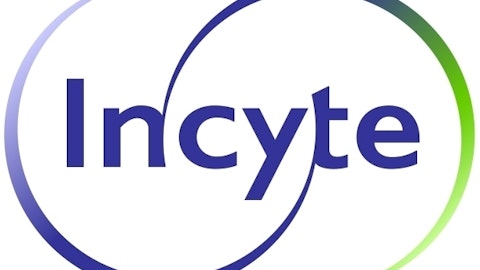Obamacare. Is. Coming.
Well, OK, many parts of the Patient Protection and Affordable Care Act, commonly referred to as Obamacare, have already been implemented. But some of the most far-reaching provisions go into effect in 2014. Here are seven things you need to know about Obamacare before then.
1. You won’t be directly affected too much — if you have health insurance through your employer.
If you have health insurance through your employer, most of the Obamacare provisions taking effect next year don’t impact you directly. You will, however, likely be affected by Obamacare in indirect ways as the legislation changes the health-care landscape.

2. You could have to pay a penalty if you don’t have health insurance.
You will be required to pay a tax penalty if you’re not covered by an acceptable insurance policy. The penalty for 2014 will be the greater of $95 per adult and $47.50 per child up to a $285 family maximum or 1% of income above a specified filing threshold ($10,000 for an individual and $20,000 for a family) — whichever is greater.
This amount is pro-rated, though. If you have insurance for part of the year and not the rest, you only pay a penalty on the amount of time you were uninsured. If that amount of time is less than three months, you won’t pay a penalty.
You also won’t have to pay a penalty if you’re an undocumented immigrant, Native American, or don’t make enough to file taxes. Some hardship exemptions also apply.
3. You might qualify for Medicaid — depending on where you live.
Obamacare encouraged states to expand Medicaid to cover individuals making up to 133% of the federal poverty line. However, at last count 27 states won’t be doing so for now.
A few of those states opting against Medicaid expansion could choose to move forward in the future. The best way to determine if you’re eligible for Medicaid is to check the website for your state’s Medicaid program.
4. You could qualify for federal tax credits to help buy health insurance.
If you’re not eligible for health insurance through your employer or government programs, you could be able to receive federal tax credits to help pay for insurance if your household income is less than four times the federal poverty level. How big your credit will be varies based on income level. Around 26 million Americans are expected to qualify for some level of credits.
5. If you need to buy insurance, you’ll do it through an online health insurance exchange.
Online health insurance exchanges are scheduled to be available on Oct. 1 for purchasing insurance. Seventeen states plus the District of Columbia are operating their own exchanges. Insurance may be bought in the other states through a federally operated exchange. Open enrollment will begin in October and closes at the end of March.
The easiest way to determine how to enroll through an online health insurance exchange is to go to HealthCare.gov. This website will provide the appropriate link to your state-operated exchange, if applicable, or walk you through enrolling via a federally operated exchange.
6. Your health insurance might be more expensive — but it could be less costly.
You have probably already heard some states project that insurance will be more expensive under the Obamacare exchanges with other states saying insurance will be less costly. The truth is that it could go either way depending on several variables.
Obamacare requires that insurance plans cover more benefits than some plans cover today. If you’re currently on one those plans with less benefits, you’ll likely pay more going forward. Generally speaking, older Americans will probably pay less while younger individuals will likely pay more. Of course, those tax credits will help many Americans bear some of the higher costs.
7. There are plenty of investing opportunities linked with health reform.
The Motley Fool is always looking for an investing angle — and there are plenty with implementation of Obamacare. For example, many observers expect hospitals will benefit as millions of uninsured individuals gain health insurance through Obamacare exchanges.
Community Health Systems (NYSE:CYH) is one possible hospital stock for investors to consider. The average analysts’ one-year target price for the stock represents a hefty increase over the current share price. Community Health Systems (NYSE:CYH) announced plans in July to acquire Health Management Associates to better position itself to take advantage of opportunities presented by health reform.
One change with Obamacare that many Americans might not be as familiar with is the establishment of a pathway for generic versions of biologic drugs, called biosimilars, to gain approval. Novartis AG (ADR) (NYSE:NVS) looks to be a good alternative from benefiting from a coming wave of biosimilars. The company’s Sandoz unit, a leader in the generic drug market, has stated that it expects the overall biosimilar market to soar to more than $20 billion by 2020. Sandoz hopes to claim a nice share of the coming boom.
Another possible investing play is in temporary staffing agencies. Yes — there’s plenty of disagreement about how much Obamacare is really causing companies to use temporary workers. However, temp agency Robert Half International Inc. (NYSE:RHI) reported significant interest in its services from organizations ostensibly looking to circumvent the 50-employee threshold for providing health insurance mandated by Obamacare. The employer penalties have been pushed back a year, but Robert Half and its peers could benefit as the Jan. 1, 2015 effective date draws closer.
Key parts of Obamacare are on the way soon. There’s plenty you need to know, but there’s plenty of opportunity as well.
The article 7 Things You Need to Know About Obamacare Before 2014 originally appeared on Fool.com and is written by Keith Speights.
Fool contributor Keith Speights has no position in any stocks mentioned. The Motley Fool recommends Robert Half International.
Copyright © 1995 – 2013 The Motley Fool, LLC. All rights reserved. The Motley Fool has a disclosure policy.


